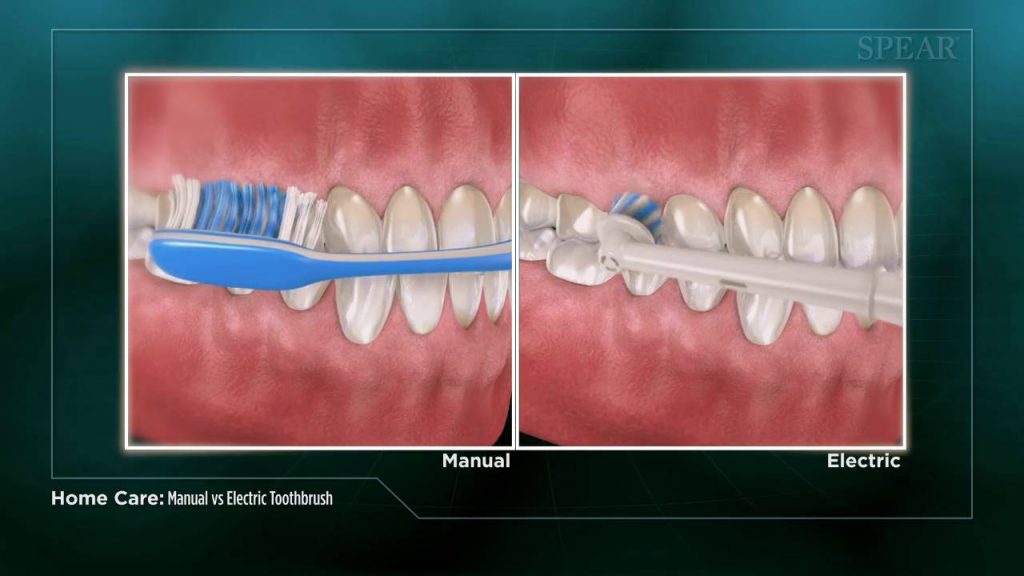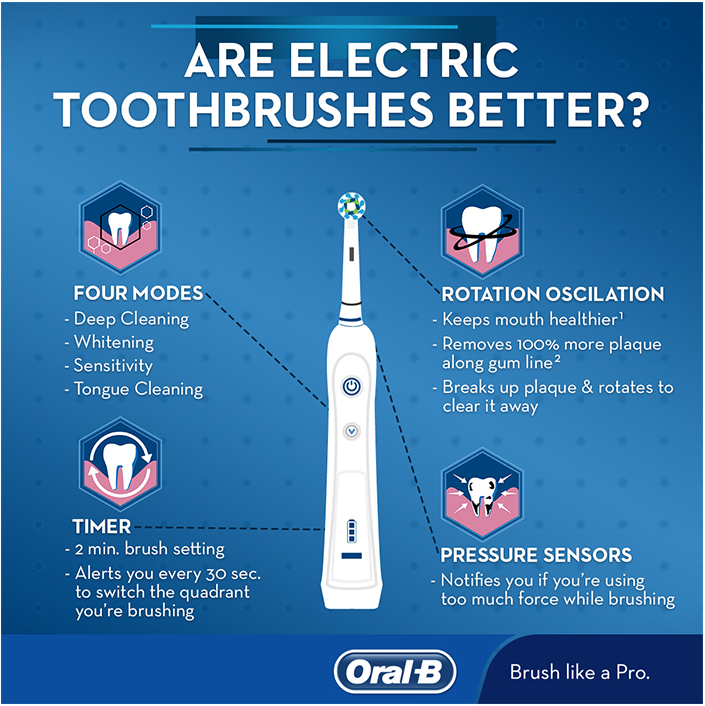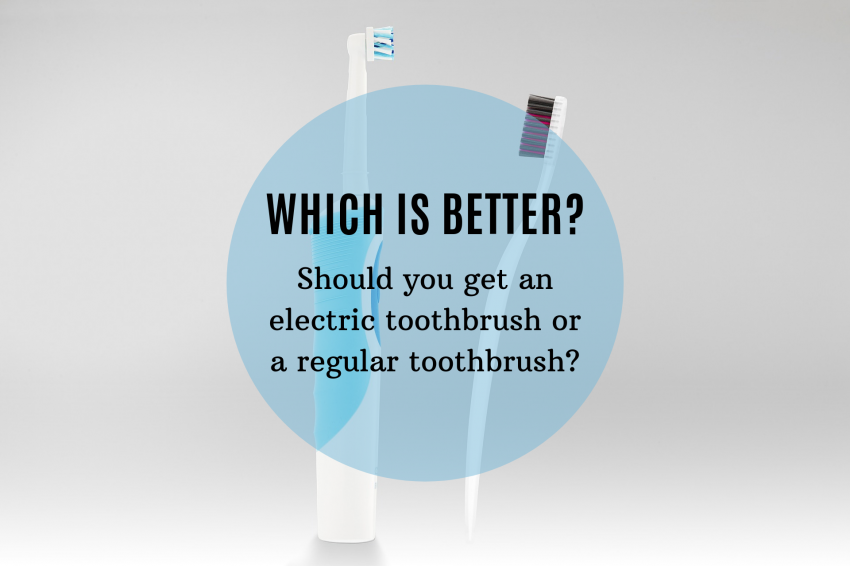A good, old-fashioned regular toothbrush has been the backbone of our daily oral hygiene routine. Time and time again, it has always got the job done but in recent years, the electric toothbrush has become a serious contender.
Both types of toothbrushes are designed to promote good oral health but the one you choose to keep your teeth clean depends on your personal preferences. Which begs the question: Are electric toothbrushes better than regular ones?
The good news is that both electric and regular toothbrushes can help to keep your mouth as clean as possible when fluoride toothpaste is used.
Ability to remove plaque
The purpose of a toothbrush is to remove plaque and stimulate the gums to prevent tooth decay and gum disease.
When electric toothbrushes were first introduced to the public, there wasn’t a huge difference between regular toothbrushes and electric toothbrushes in terms of removing plaque.
Thankfully, the design and technology of electric toothbrushes have evolved to significantly removing more plaque than a regular one in hard-to-reach areas. Electric toothbrushes can also help by applying the right amount of pressure when brushing your teeth. Some even have pressure sensors that freeze the toothbrush’s motion if you’re pressing too hard!
Brushing techniques

Brushing your teeth doesn’t require much thought nor is it complicated, but there is a right and wrong way in doing it. When using a regular toothbrush, hold it at a 45-degree angle to your teeth, starting at the gum line. Using a gentle circular motion, move your brush up and down each tooth.
The right size and shape of a toothbrush will allow you to reach all the way to your back teeth. A plus point of an electric toothbrush is that they’re significantly smaller than that of a regular toothbrush. As a result, you will be able to easily reach those awkward angles at the back of your mouth.
There is only one technique of brushing when using a regular toothbrush. With an electric toothbrush, your technique depends on the model you’re using. Some models clean by oscillating-rotating, vibrating, or using sonic technology. The bristles on electric toothbrushes can sometimes be thinner and pointier that helps people with braces or dental restorations.
Ease of use
The perfect shape and length of a regular toothbrush makes it easy for most people to use. But for those who lack manual dexterity or the ability to direct the toothbrush in the correct motion, an electric toothbrush can help.
Granted, an electric toothbrush is certainly heavier compared to a regular toothbrush as most models require batteries to power them. Even those with a rechargeable battery will need to be charged on a regular basis. You will still need to guide the toothbrush to ensure your teeth are being cleaned, but at least the brushing motion itself is done by the electric toothbrush.
Cost comparison
Of course, when it comes to cost, a traditional regular toothbrush is still the better choice. A regular one would not hurt your wallet, depending on the brand, comfort grip, and other features designed to make your oral care routine more effective and enjoyable.
Understandably, an electric toothbrush is more expensive than a regular one but there is a wide variety available these days. A higher price tag does not necessarily equate to better performance when it comes to effectiveness; although, it allows you to appreciate the extra features that a regular one does not have.
An electric toothbrush will come with one or two brush heads upon purchasing it but be aware that the heads don’t last forever. Additional brush heads can be quite expensive but if you are perfectly fine with buying spare heads, then you can make do with an electric one.

With that said, an electric toothbrush might make more sense for some people than a regular one. Yet, whichever toothbrush you choose, you will still need to replace it regularly to ensure your oral hygiene routine is not disrupted and remains effective to keep your teeth clean.
Regardless of the type of toothbrush you plan to use, you should always go for those with soft bristles as anything harder can damage your gums. If you plan to get an electric toothbrush, a good place to start is to know what you need it for and if you can afford the replacements when it is necessary to change. If you’re not sure where to start, you can ask your dentist for advice and recommendation.
